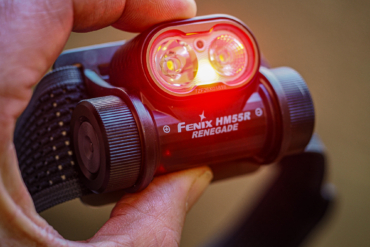When a multinational team of engineers rethinks urban mobility and e-scooter technology, you get the world’s first hyper scooter.
E-scooters have revolutionized how people get around urban environments. They’re compact, easy to ride, cheap to “refuel,” and leave less of a carbon footprint than conventional gas-powered vehicles.
Companies like Lime and Byrd have invested heavily in e-scooter tech, and, as such, these commuters are also popular for individuals going from A to B.
But the two-wheeled versions commonly found in and around cities are basic. There isn’t much that’s flashy or stylish about them, and the technology isn’t anything to write home about.
D-Fly recognized this as an opportunity. Assembling an A-team of award-winning engineers from the U.S. and Britain, it designed and developed the world’s first “hyper scooter” — the Dragonfly.
E-scooters have never looked sexier.
The Dragonfly E-Scooter: What Puts the ‘Hype’ in ‘Hyper’?

D-Fly calls its scooter “the urban mobility equivalent of a supercar.” How does it qualify that?
First and foremost, the Dragonfly’s steering works less like a scooter and more like a moon rover. It uses patented full-tilt 3D steering, meaning all four wheels turn in sync with the rider — a huge upgrade to conventional scooter steering.
The Dragonfly was also designed to be a smooth ride. It has dual wishbone suspension, a fully adjustable hydraulic-damped spring suspension on all four wheels, adjustable deck suspension, and full axle articulation. So even if you’re traversing rough asphalt, dirt roads, or gravel, the Dragonfly sounds like it will absorb impacts like a sponge.
This scooter is fast too. Most commercially available e-scooters will get up to 15-20 mph. The two 550W motors on the Dragonfly e-scooter can crank out up to 1,650 W of energy, pushing the top speed of the world’s first hyper scooter to 25 mph.
Zip along with traffic in bike lanes or ride at slower speeds on the safety of a sidewalk.
The Dragonfly’s steering display is a 3.5-inch color digital screen showing speed and speed mode, trip range, light status, and battery performance. The display even has onboard ride sounds and spoken navigation.
One of the most important features, though, is security. Users can lock their e-scooter with a four-digit pin displaying the entire system. If someone tampers with it, an audible alarm notifies the owner and a built-in GPS tracker system will detect its location if it’s stolen.
And, of course, the Dragonfly gets extra points for style. Compared to conventional e-scooters and e-bikes, this one looks downright slick.
Urban Exploration, Off-Road Adventure

D-Fly is coming out of the gate with two different models of its Dragonfly scooter: the DF and the DFX. For anyone who plans on using the brand’s Dragonfly strictly in urban environments, with smooth streets and sidewalks, the DF is ideal ($1,850 MSRP).
If, however, you want to rock and roll on some variable terrain, the DFX ($2,200 MSRP) is D-Fly’s off-road version. It comes with hand guards, a fender, and front and back rack accessories.
Both models have front electric brakes, headlights, traction control, an extra-wide deck, and brake and turn indicators for improved safety. And both models are constructed from aerospace-grade aluminum and automotive-grade polymers.
The Macro of Micro-Mobility

As people work harder to avoid using fossil fuels, micro-mobility is changing the way we get around cities. E-bikes and e-scooters are taking cars off the road and reducing carbon emissions all over the world.
With the technology surrounding micro-mobility evolving and becoming safer and more reliable, more people will gravitate toward e-vehicles. Especially once high-end (hyper) models like the Dragonfly hit the scene. Not only is the world’s first hyper scooter fast, convenient, and sustainably powered, but it’s also a high-tech piece of equipment with an extremely modern look that attracts.
The Dragonfly DF and DFX hyper scooter is available through Indiegogo. Check out D-Fly’s website for more information.








